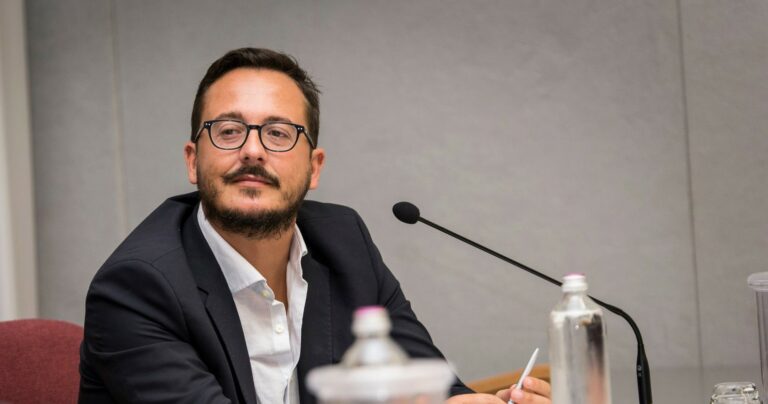Trends
What is the role of collective intelligence in promoting diversity and inclusiveness in organizations? Proposing a three-step process, Paolo Venturi shows us how collective intelligence can foster social innovation.
The power of collective intelligence in contexts marked by profound heterogeneity and diversity can be observed in its ability to nurture generative processes: such generativity flourishes in the complexity and postulates the opening and sharing of a common purpose. Designing contexts to promote rituals, challenges and conversations “among heterogeneous groups” is indispensable not only for nurturing social innovation but also for redesigning, and in some ways relaunching, the sense of cooperation that has been confined to the relationship between equals for far too long (while as Richard Sennet reminds us, it is in diversity that communal values are manifested). Configuring locations (both physical and digital) and lowering thresholds to foster commonality between entities and relationships among people who do not share a common language and geographic origin is currently the most appropriate way to nurture that “adjacent possible” (Kaufman) underlying creative processes. Multilingualism and multiculturalism present a great challenge and opportunity not only in terms of integration and inclusion, but above all trigger new forms of innovation that break existing patterns and, indeed, establish prototypes for new institutions and projects. Diversity becomes a generative factor when it can deconstruct and re-socialize the substance of policies and organizations nowadays challenged to “navigate” the uncertainty of day-to-day life and come to terms with the growing forces that defend historic legacy and the enduring compulsion to preserve. Therefore, the possibility of recognizing diversity as a generative option is increasingly related to the nature of institutions and their ability to embody not only a “power base” but also a “resource” capable of acknowledging and empowering diversity itself.
Institutional change shapes the way societies evolve through
time and, hence, is the key to understanding historical change”.
According to Douglas North, “Institutions are the rules of the game in a society; more formally, they are the humanly devised constraints that shape human interaction. Thus, they structure incentives in exchange, whether political, social, or economic. Institutional change shapes the way societies evolve through time and, hence, is the key to understanding historical change”. The need to “ascribe value” to diversity is linked to how institutions change and the possibility that “radically new” ones may arise. To this end, we can legitimately ask about the substance of the organizations? We must increasingly ask ourselves this question insofar as the extent of formality and bureaucracy is now almost uncontrollably expanding: the growing need for compliance with a proliferation of regulatory and para-regulatory constraints (certifications, standards, etc.) is increasingly weighing down organizational and decision-making structures to the benefit of two particular stake- holders, which are increasingly important in determining the degree of openness and inclusion within organizations. The latter include the corporate management constituencies – now multilayered and widespread both upwards in governance roles and downwards in the control of production processes – and the consultancy complex, which under the guise of an “ecosystem” and acting with the best support- ive intentions, ends up increasingly colonizing organizational management not only in the day-to-day but also in terms of purpose and strategy. We are thus drifting towards a technocratic dominion that generates consequences, both in terms of performance in the strict sense – e.g., in terms of attracting resources and investment capacity – and almost more importantly, in terms of purpose, in that such organizations risk falling away as vital institutions capable of fostering collective action, sustaining it and increasing its impact, but are conversely becoming places of mortification from which an increasing number of people, especially in recent times, are striving to escape.
Hence the urgent need to focus on what organizations “materially” represent by activating consequent (and sometimes complex and painful) processes of change. The ultimate answer boils down to community. To be functional and viable, organizations must be inclusive and supportive places for collective subjects; they must be capable of affording recognition and support and acting for mutual benefit. In other words, we must have communities that know how to manage their mutual dependencies along the increasingly blurred and fluid boundaries between internal and external scope, implementing that distinctive social relational mechanism which is “mutualism.” This is no small step because the management practices of organizational communities have been revolutionized in recent years through a complex of executive, social and technological mechanisms primarily aimed at asserting their value through a formalization and codification of their procedures and knowledge (in particular, the most valuable being that of tacit enforcement). These attempts have enjoyed only limited success and at a high price, namely chilling the energized component of community relations, i.e., the generator of value production.
Rekindling a community spirit through the capacity for mutualistic exchange “among heterogeneous groups” is, therefore, a compulsory step if the role of organizations in our society is to be re-substantiated or redefined. However, as argued above, this requires the initiation of radical paths of change management along the following lines.
Firstly, the surrender of organizational power in a “federal” sense through a devolution process in favor of community subjects. The latter is difficult to implement insofar as, especially in recent decades, there has been an over-concentration of power within governing bodies which are, moreover, increasingly populated by subjects alien not only to the “objects of production” but also to the organizational culture that contributes to perpetuating a mission-specific and value-oriented outlook.
Secondly, the ability to reconstruct organizational management systems that are currently very much determined by the driver of artificial intelligence, thereby enabling communities to better operate as collective intelligent agents capable of interrogating and directing algorithmic production that otherwise risks monopolizing organizational decision-making. Thirdly, the redefinition of organizational boundaries within an integrated vision of the environment, society and technology, for which communities can play a crucial interface role due to their ability to relate elements of diversity and, from these, produce a synthesis of products, services, and with them, new meanings

Paolo Venturi
Director of AICCON and The FundRaising School
Paolo Venturi is the director of AICCON and The FundRaising School. Professor in social entrepreneurship and social innovation at the University of Bologna. He is member of the Scientific Committee of the Symbola Foundation, of Corriere Buone Notizie and of the Social Impact Agenda for Italy. Member of the Social Cooperation Council of Tuscany and Emilia-Romagna. Co-Author with Flaviano Zandonai of numerous publications including “Neomutualism”, “DOVE. The dimension of place that recomposes business and society” and “Hybrid companies. Models of social innovation to regenerate values” published by Egea. He collaborates with numerous newspapers and blogs including Il Sole 24 Ore, Il Corriere della Sera and Vita Magazine.
Photo credit: Lysander Yuen, Unsplash
